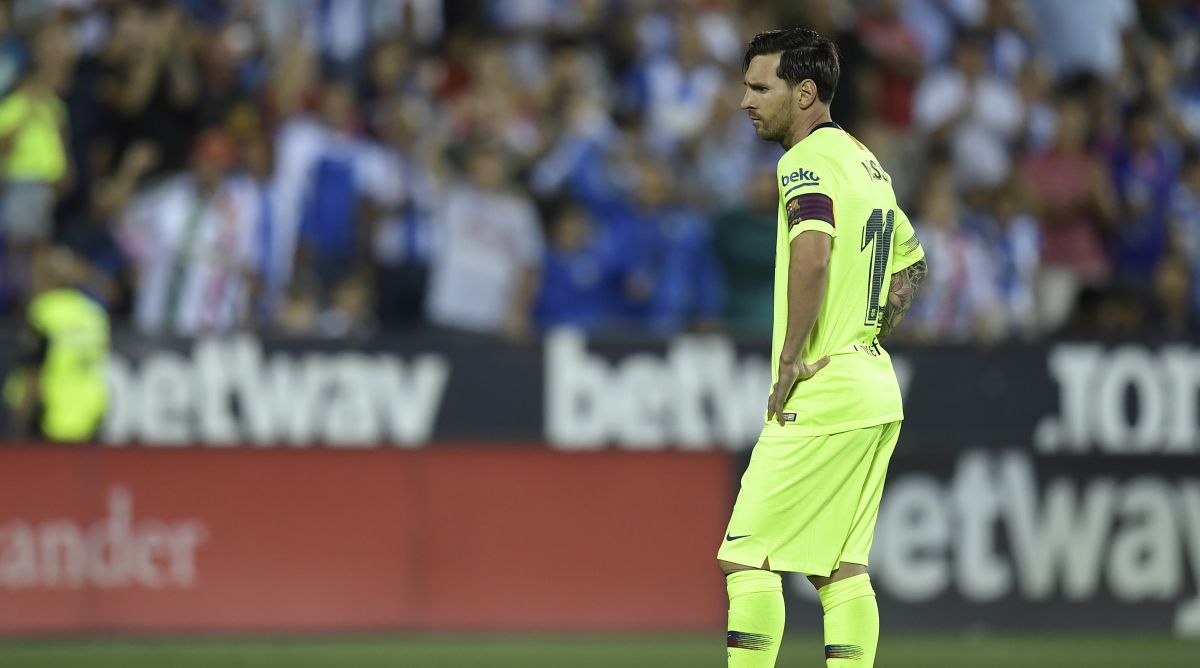Lionel Messi wants to win more titles with Inter Miami, hopes MLS clubs use ‘The Herons’ as example moving forward
Lionel Messi is as motivated as ever to win with Inter Miami and hopes to add more to an already illustrious trophy cabinet.
It was 2011 and Barca had beaten Manchester United 3-1. “No one has given us a hiding like that,” Alex Ferguson said.

Barcelona's Argentinian forward Lionel Messi. (Photo: AFP)
As Lionel Messi lay on the Wembley grass, his left hand grasping the Champions League trophy and his right pumping the air, he must have thought there would be many more European glory nights to come.
It was 2011 and Barca had beaten Manchester United 3-1. “No one has given us a hiding like that,” Alex Ferguson said.
Advertisement
They were so much better than the rest that many predicted a decade of European dominance after that mesmerising display.
Advertisement
“We have a challenge with Barcelona, we all do,” Ferguson said.
Messi had scored his side’s second. Barcelona bounced in front of the photographers, the club’s name carved into the trophy for a fourth time.
For the 23-year-old Messi at the front, it was a third Champions League triumph in six years.
But there has been only one in the seven seasons since, when Luis Enrique led his 2015 Barca to a brilliant treble.
To make matters worse, arch-rivals Real Madrid have been crowned European champions four times and three times in a row since 2016.
“They have made history and it’s a thorn in our side,” Luis Suarez said.
Messi returns to Wembley to face Tottenham on Wednesday with happy memories but all of this weighing on his shoulders.
– ‘It’s time we won’ –
======================
For most players, four Champions League titles is unthinkable but for Messi, playing through this era of Barcelona, it feels light.
“It’s time we won the Champions League,” Messi told Catalunya Radio last month.
The club feel it too. Winning La Liga has become more routine than remarkable.
Even last season’s double barely laid a finger on the disappointment of a third straight quarter-final exit, following a collapse at Roma when the Italian side overturned Barca’s 4-1 first leg lead.
Ernesto Valverde bore the brunt of the criticism, the most popular slight being that he exhausted the players in a league that had long been won. The other, always lurking, was that he had relied too much on Messi.
Both have bubbled ever since and then burst to the surface last week when Barca, with key players rested, failed to record a win in three consecutive league games.
They drew at home to Girona and lost to bottom club Leganes. Valverde persisted, and it was Messi’s turn on the bench against Athletic Bilbao.
He came on, and set up the equaliser, but that only gave greater weight to the argument Barcelona cannot do without him.
“LaMessidependencia,” (“the Messi dependence”) Madrid daily AS termed it on Monday, before listing all the relevant statistics.
But the problem is perhaps less how to cope without Messi than how to overcome deficiencies elsewhere in the team.
Barca’s defence, the platform of their domestic success last season, is shaking, with fingers pointing at Gerard Pique whose mistakes have become too frequent to be ignored.
The midfield, without Andres Iniesta, lacks thrust while new signings Arturo Vidal, Clement Lenglet and Malcom are still bedding in.
As for Messi, pressure is nothing new. Argentina proved at the World Cup that he cannot carry a poor team, but he can certainly inspire a good one. In 2011, they relied on him too.
“We have great players but without him we would not be able to play the way we do,” Pep Guardiola said, as his team celebrated on the Wembley turf.
“We have hard work, talent and tactics that help, but Messi is unique, irreplaceable. He gives us that something extra.”
Advertisement